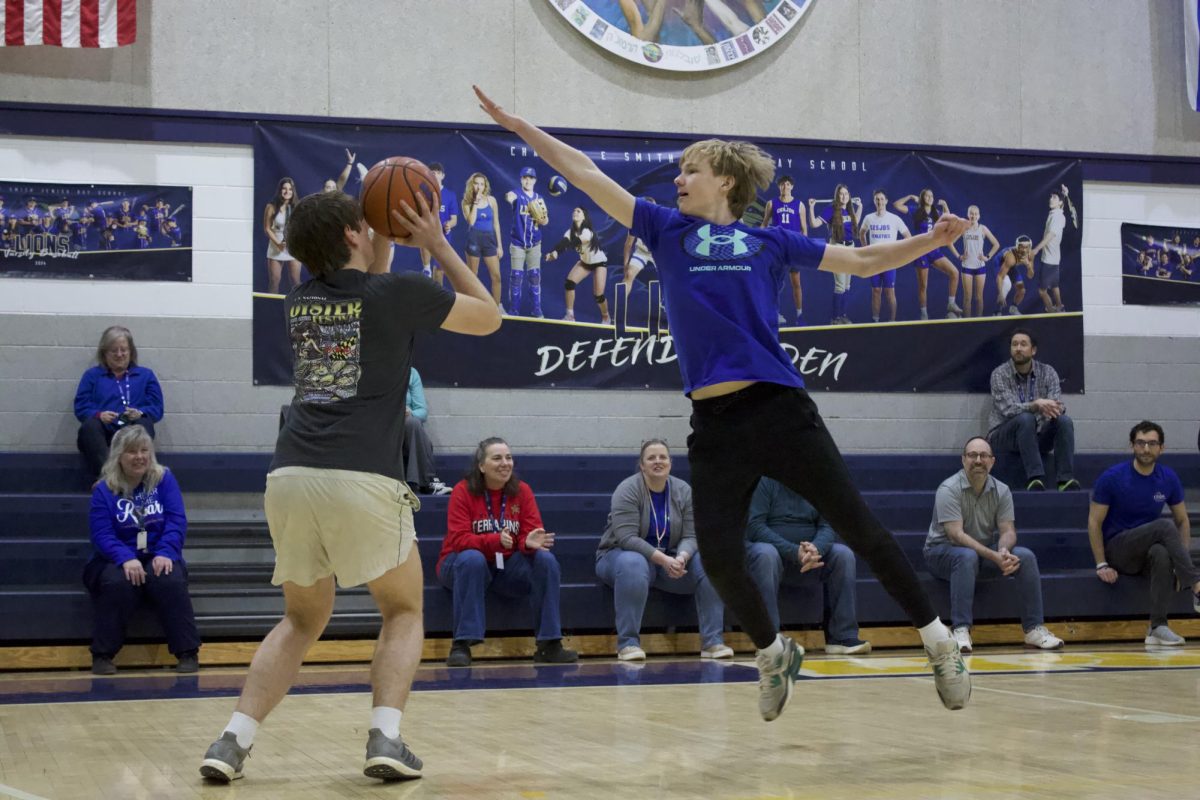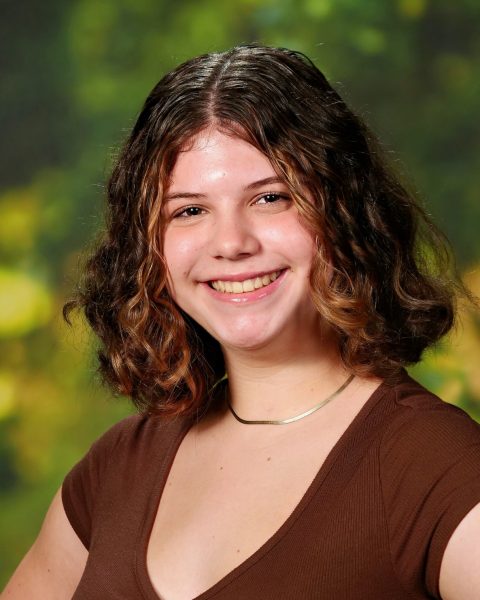At a martial arts competition last December, English teacher and Department Chair Melissa Fisanich prepared to impress the judges with her practiced forms, or representations of movements, in tang soo do. She had been practicing to improve these skills for many years and was excited to demonstrate her abilities in a higher-stakes environment.
Fisanich has been doing tang soo do, an offshoot of Japanese martial arts, for 10 years. Many aspects make up tang soo do, such as detailed sequences of movements and choreographed fights to showcase technique. Tang soo do focuses on sparring, which are motions of fighting without the harsh contact. Fights at competitions are combinations of rehearsed sequences and real fights against competitors to demonstrate skills spontaneously.
Fisanich originally got involved with martial arts because her son was taking karate classes and her husband thought she might enjoy it herself. She is currently working on becoming a black belt-which signifies mastery of basic karate skills-at the Tompkins Karate Association in Gaithersburg.
“If I become a black belt, it will open up a lot more opportunities to go [compete at a higher level] with other people in my organization,” Fisanich said. “Black belts in my organization might travel to tournaments at different places and compete against other high-level martial artists.”
In anticipation of becoming a black belt, Fisanich has spent time perfecting many moves. One of the moves Fisanich has found the most difficult to perfect at the black belt level is an upwards block, done by lifting an arm with a bent elbow and a fisted hand above one’s head.
In contrast to the perfected choreographed movements of tang soo do, for three years, sophomore Jonah Soffler has been doing martial arts styles focused on joint locks and takedowns such as kickboxing, wrestling and jiu-jitsu, a type of Japanese martial arts.
Soffler trains at Culture of Jiu-Jitsu in Gaithersburg. He originally started learning martial arts with a physical trainer to try an individual sport, but he ended up enjoying practicing even more and has been doing it ever since.
“I played team sports for a while, and then I decided to experiment with individual sports, I would be in control of the sport instead of having a team,” Soffler said.
According to Fisanich and Soffler, many people enjoy focusing on self-improvement and individual skills rather than having to rely on a team.
In addition to Soffler and Fisanich, junior Alma Medvedofsky has been doing karate at Kicks Karate in Bethesda for eight years.
The style of karate that Medvedofsky does includes self-discipline and choreographed movements found in tang soo do, in addition to kickboxing with an emphasis on improving sparring skills.
Medvedofsky has been a second-degree black belt since March 2024, with an even higher status of knowledge and devotion than a first-degree black belt. According to Medvedofsky, her experience doing karate has taught her discipline as well as the ability to protect herself.
“It really, really makes me feel so good physically afterwards,” Medvedofsky said. “I’m able to let off steam and just let go of my energy in the class and feel so much better both physically and mentally.”


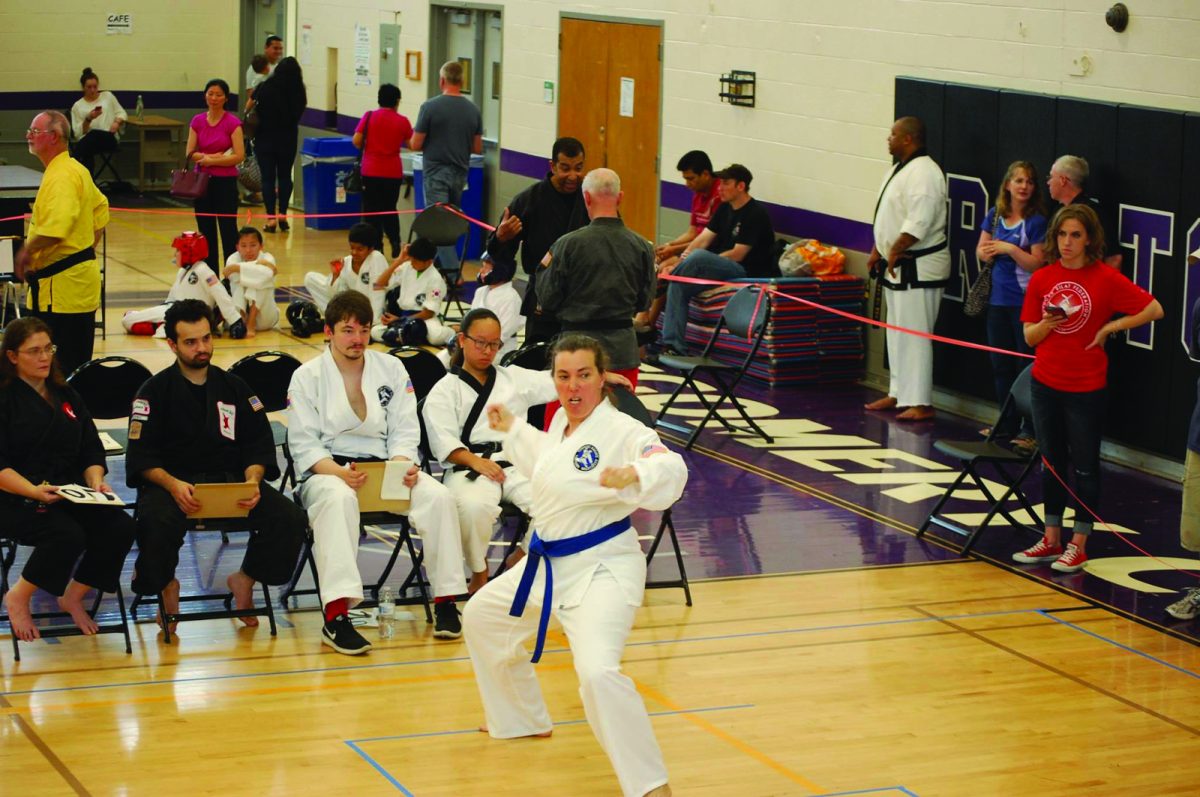
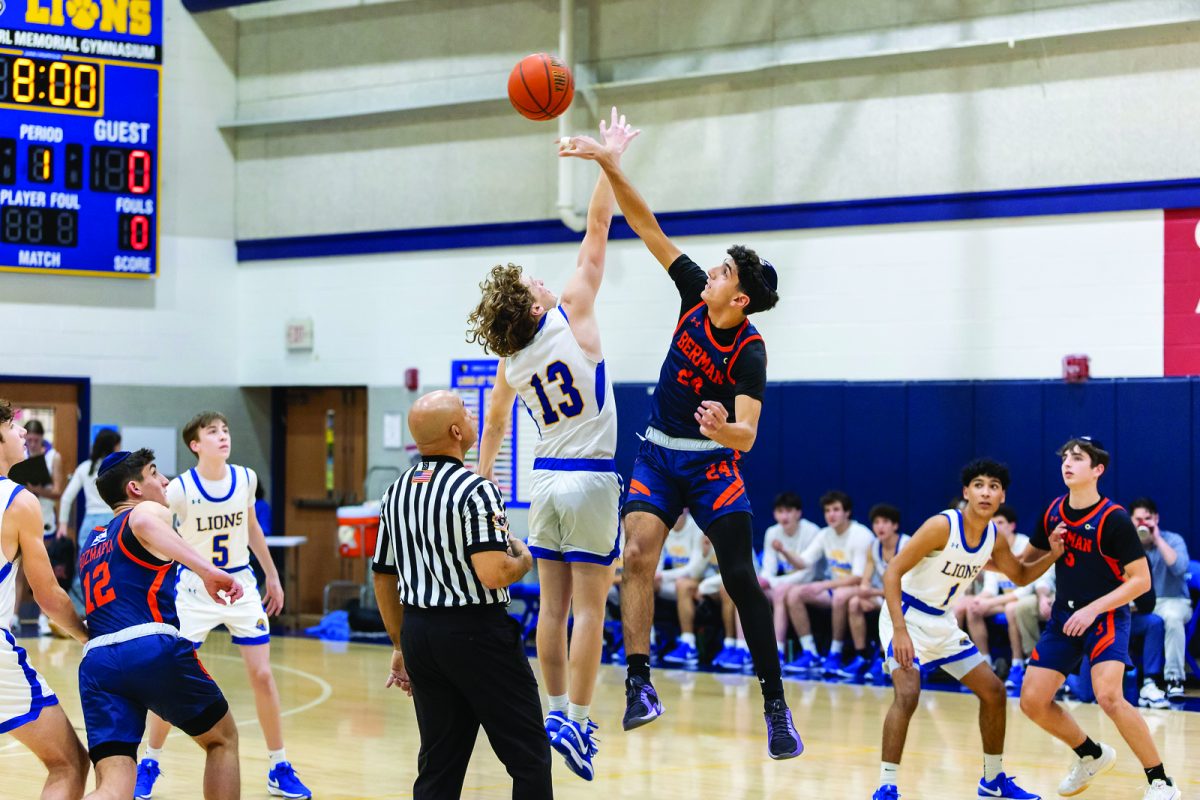
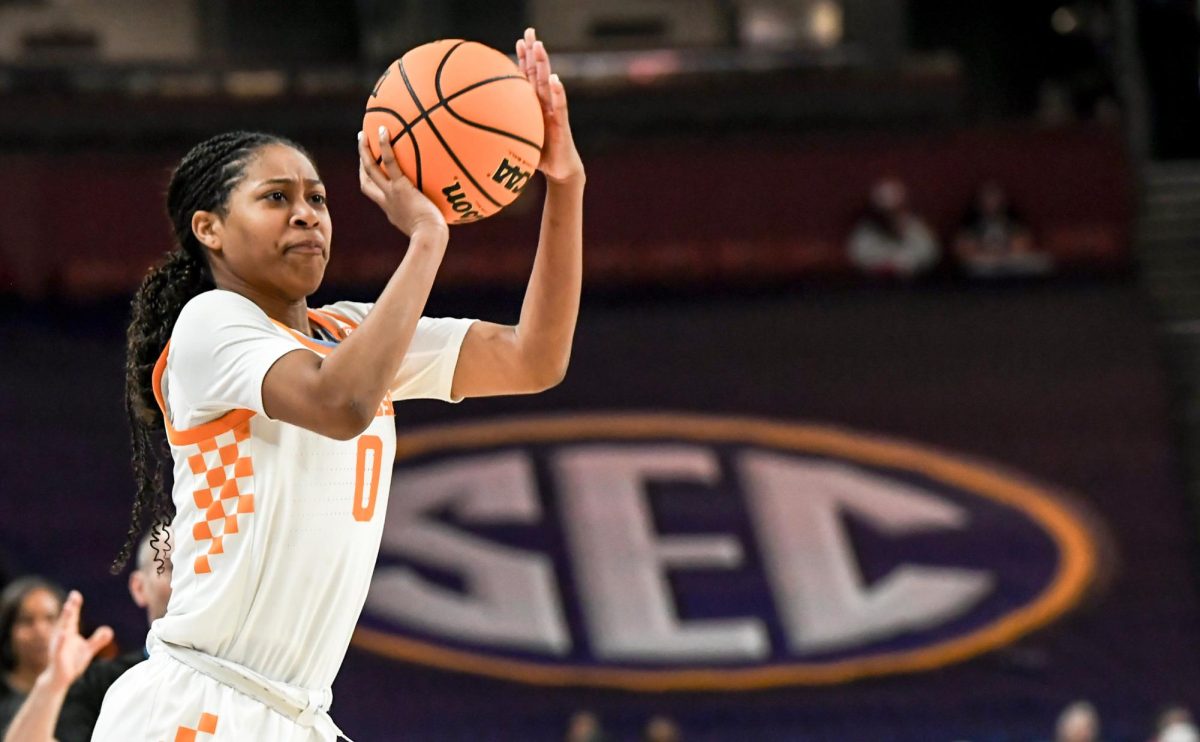

![Spring sports tryouts were held from March 3 to March 6. During varsity volleyball tryouts, players practice skills including serving, hitting and scrimmaging. Junior Ami Epstein hasn’t participated in any varsity CESJDS team sports before, and while he feels that it is going to be a challenge, he is ready for it. “I'm excited for the challenge and the learning curve,” Epstein said. “I also like that it’s [volleyball] a team sport.”](https://lionstale.org/wp-content/uploads/2025/03/IMG_5677-e1741654243130-900x1200.jpeg)
